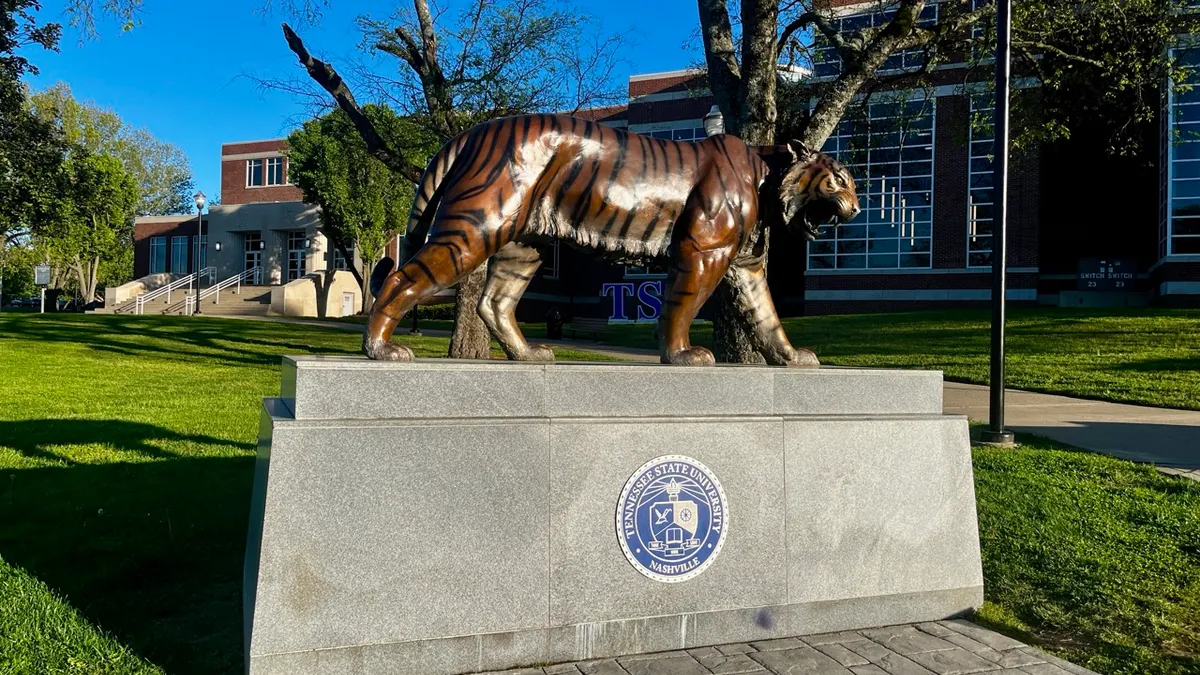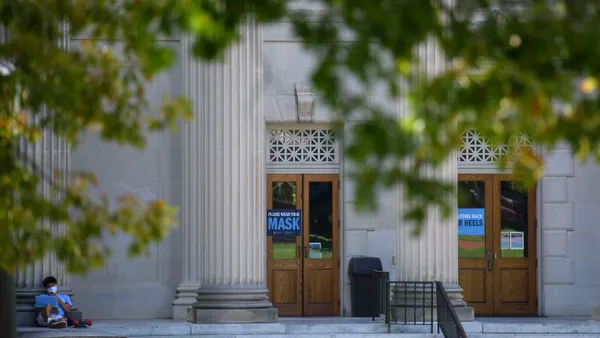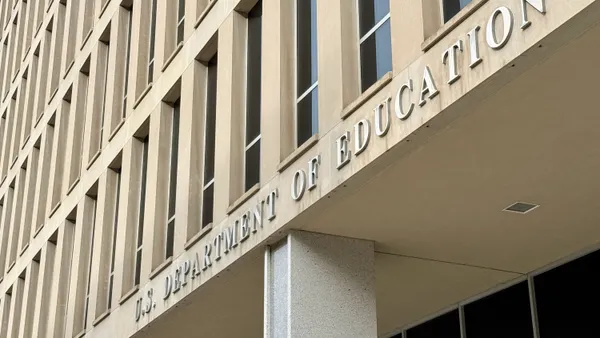Dive Brief:
- Tennessee State University will gain access to $96 million over three years to support its operations after reaching a deal with the state government, according to a news release Tuesday.
- The funds will come out of $250 million set aside in 2022 by state lawmakers for capital improvements and infrastructure upgrades at the university. Of that, $99 million is “actively addressing” deferred maintenance needs, Tennessee State said. After reallocating the $96 million, the university will have $55 million left for key capital projects.
- The deal comes as leaders of the public historically Black institution try to stabilize its finances and operations following years of distress and recent months of severe cash concerns.
Dive Insight:
Tennessee State has faced a dire cash need since at least the fall, when state officials said that the university only survived because of an emergency injection of public funds. Early this year, university leaders worried about another possible cash shortfall.
The university still faces a deficit nearing $39 million for fiscal 2026, even after its officials recently approved a tuition hike and identified up to $26 million in cost savings so far.
The newly reallocated state funds are critical as Tennessee State works on its turnaround.
The money “not only provides crucial cash flow to ensure the university’s financial sustainability but also allows us to invest in enriching the student experience and strengthening our capacity to attract both students and qualified employees,” Interim President Dwayne Tucker said in a statement.
The remaining $55 million set aside for capital spending will support a $33 million upgrade to Tennessee State’s campus electrical grids, and the final $22 million in funding will go to new buildings for the university's agriculture college.
The landmark $250 million investment in the university came after decades of Tennessee underfunding the HBCU.
In addition to its history of unequal state funding, many of Tennessee State’s financial woes stem from past management issues and enrollment declines — which were partly entwined.
Among the most disastrous mistakes the university made was promising full rides to most students early in the pandemic. The program relied on emergency federal funds, but officials didn’t establish a funding plan for continuing the scholarships when that source dried up.
Some students found themselves without scholarships amid the funding issues. Amid the broken promises, first-year student enrollment halved within a year from 2022 levels of about 3,500 students, and kept falling, reaching about 880 students by 2024, officials said last year. In 2023, total fall headcount declined 11.1% from the prior year to 8,198 students, according to federal data.
A recent audit also detailed faulty financial controls and processes in past years that led to over- and undercharging students for tuition and fees as well as misstating cash balances on institutional financial statements, among other issues.
In March 2024, Tennessee’s state senate voted to remove all of the university’s trustees, and Gov. Bill Lee named their replacements.
Tucker, one of Lee's appointments, became interim president of his alma mater in December. He promised at the time to bring transparency and integrity to the work of helping lead the university through a turnaround.
State officials have been “encouraged by the progress TSU has made in recent months and remain committed to its long-term success and promising path forward,” Tennessee Comptroller Jason Mumpower said in a statement Tuesday. “I signed this agreement because I have confidence in TSU’s current leadership team and their ability to understand and navigate the institution’s challenges.”















